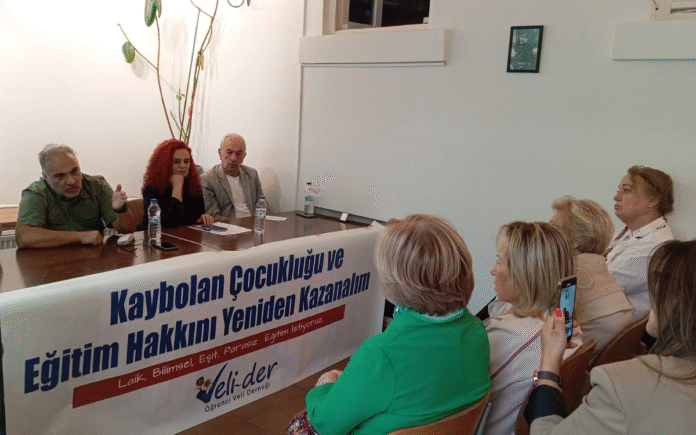Turkey’s deepening economic crisis is pushing children out of school, while structural problems in the education system threaten their right to education, the İstanbul-based Student-Parent Association (Veli-Der) said Saturday in a report, according to the Cumhuriyet daily.
The report cites declining equality of opportunity, the increasing marketization of education, rising child labor and the near disappearance of co-education as key challenges. It also highlights alarming statistics on child welfare, child labor, child pregnancies and workplace deaths.
The report draws on an outcome document produced after a two-day Veli-Der workshop held August 30–31.
Currently 1.5 million children in Turkey, about one in seven, are out of the education system, while during the summer months, the number of working children approaches 3 million. UNICEF’s Child Well-Being Report ranked Turkey second-to-last among 36 OECD countries in overall child welfare. According to Health and Safety Labor Watch (İSİG), 60–70 children die each year while working.
Child labor is a longstanding issue in Turkey, particularly in rural and economically disadvantaged areas. While Turkey has signed various international conventions, including those set by the International Labour Organization (ILO), prohibiting child labor, enforcement remains a challenge.
Under Turkish law, the minimum age for regular employment is 15, with “light work” permitted from 14 under certain conditions including apprenticeships and vocational training schemes, such as Vocational Education Centers (MESEM). In contrast international labor standards set by the United Nations and the ILO define anyone under 18 as a child and classify many forms of employment before that age as child labor, particularly when the work is hazardous or interferes with schooling.
Unions and human rights advocates say poverty is the main reason school-age children have to work. They note that deepening poverty pushes minors out of school into illegal, hazardous jobs without insurance.
The report also emphasized the gender dimension of education. About one-fifth of middle schools do not offer co-education. In Turkey 221,000 girls of compulsory school age are not attending school.
Veli-Der emphasized that the government must guarantee free, high-quality education accessible to all. It called for two years of preschool education, followed by uninterrupted implementation of compulsory 12-year schooling. The association also urged the introduction of free meal programs in schools and an increase in the number of schools.





![[Interview] Authoritarianism creates an unsafe environment for children, Defence for Children Netherlands Director Blaak says](https://stockholmcf.org/wp-content/uploads/2025/07/Screenshot-2025-07-21-at-14.07.38-218x150.png)









